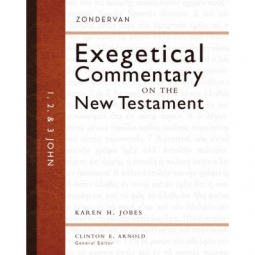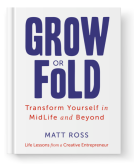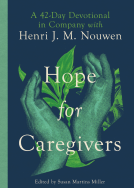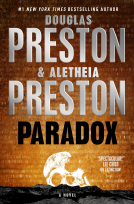
1, 2, and 3 John
by Karen H. Jobes, Clinton E. Arnold
This title was previously available on NetGalley and is now archived.
Send NetGalley books directly to your Kindle or Kindle app
1
To read on a Kindle or Kindle app, please add kindle@netgalley.com as an approved email address to receive files in your Amazon account. Click here for step-by-step instructions.
2
Also find your Kindle email address within your Amazon account, and enter it here.
Pub Date Feb 11 2014 | Archive Date Aug 22 2017
Zondervan Academic | Zondervan
Description
Designed for the pastor and Bible teacher, the Zondervan Exegetical Commentary on the New Testament brings together commentary features rarely gathered in one volume. Written by notable evangelical scholars, each volume treats the literary context and structure of the passage in the original Greek, and each author provides an original translation based on the literary structure. The series consistently provides the main point, an exegetical outline, verse-by-verse commentary, and theology in application in each section of every commentary. Critical scholarship informs each step but does not dominate the commentary, allowing readers to concentrate on the biblical author's message as it unfolds. While primarily designed for those with a basic knowledge of biblical Greek, all who strive to understand and teach the New Testament will find these books beneficial. The Zondervan Exegetical Commentary on the New Testament series covers the entire New Testament in twenty volumes; Clinton E. Arnold serves as general editor. 1-3 John In her commentary on John's letters, Karen H. Jobes writes to bridge the distance between academic biblical studies and pastors, students, and laypeople who are looking for an in-depth treatment of the issues raised by these New Testament books. She approaches the three letters of John as part of the corpus that includes John's gospel, while rejecting an elaborate redactional history of that gospel that implicates the letters. Jobes treats three major themes of the letters under the larger rubric of who has the authority to interpret the true significance of Jesus, an issue that is pressing in our religiously pluralistic society today with its many voices claiming truth about God.
Available Editions
| EDITION | Other Format |
| ISBN | 9780310244165 |
| PRICE | $34.99 (USD) |
Average rating from 24 members
Featured Reviews
 Jerry H, Educator
Jerry H, Educator
I remember when I was younger, a mere twenty-something going off to Bible college in the 'big city'--full of small town conservative enthusiasm. I was from a small-town, a little right of right conservative church of Christ/Christian Church. We, of course, do not 'permit' women to have positions of 'authority' or to 'teach men' or to be 'elders' or, for the most part, 'deaconesses.' Imagine my surprise when I went off to college, in the denomination, and in one of my first classes, on Genesis, I was asked to read a commentary by Joyce Baldwin. I still remember, to my shame, speaking of her in a rather condescending way. (Ironically, I'm now teaching part-time at a small Bible college and using Baldwin's commentary on Daniel for the students' textbook. Good times.) I had much to learn about who God uses to teach ignorant people like myself. It's funny, now that I think about it, how much I have had to learn.
Well, here I am many years removed from Bible college. I have moved back to my hometown after 25 some years away and still not much has changed--except me. I have spent considerable time--even this summer--reading a number of books written by female authors and I have been, to a large degree, disappointed. There always seems to be an agenda of some sort or other instead of a simple commentary on what is written. (Oftentimes I find that commentators, whether male or female, tend to read issues back into the commentary so that even though the Biblical author had absolutely no idea such and such was a problem, low and behold, our modern commentator has corrected the biblical author or simply pointed out how, through some exegetical gymnastics, he actually was talking about such and such.) I don't bring this up for no reason. On the contrary, I have learned to appreciate good scholarship regardless of whether its a man or woman writing and in the case of this particular commentary, I am simply happy to have read it because it is just an outstanding, excellently written commentary on the letters of John.
I don't want to hide the fact that I love that Karen Jobes wrote this book. I believe that the church needs to have more female academics writing commentaries and engaging in the difficult work of exegesis. It is my hope that authors/scholars like Karen Jobes will be role models for young girls who are considering Biblical scholarship for a career. I realize it's hard to say that without coming across as a complete and utter chauvinist but here's my point: what I look for in a commentary is a serious scholarship--working with the text, digging deep into the Greek, engaging the tough issues that the text highlights and often what I get is something that is less than serious. I look for an author who wrestles mightily with the text and stays humble before it. I found such an author in this commentary. Maybe I've been out of the loop for too long, but I am glad that the typically male dominated world of New Testament scholarship has authors and scholars like Karen Jobes writing books and explaining the Scripture to us. My life is enriched after having read this book. I recently read and reviewed a book full of sermons. One of the editors was a woman, but sadly there was not one contribution in the entire book by a female preacher. It was a glaring and significant failure of the book.
There's no pretense to this commentary. Jobes alerts the ready in the preface what her positions are with respect to her hermeneutical lens. Basic to this lens is the a priori devotion to the assumption of authorship: whoever wrote the letters we call 'John' also wrote the Gospel we call 'John' (or was at least a 'close associate.') With this said, she goes on to assert that "while the letters must be allowed their own voice, they cannot be properly understood without reference to John's Gospel as the interpretive framework for the metaphors, images, and theology common to both" (15). What follows, then, is a commentary that helps us see and make these connections, at a number of different levels and ways, and it is thus extremely helpful to have the Gospel open at the same time as the commentary. This, in my opinion, is one of the stronger aspects of this commentary because I think too many are willing to divorce the letters from the Gospel.
The commentary is arranged in a convenient manner following what seems to be a fairly standard format. The introduction, which covers all three letters, discusses briefly the significance of the letters, authorship and provenance, historical situation and the so-called 'polemical view' of the letters. In this regard, Jobes makes an important point, that I happen to agree with which is to focus the discussion of these letters based on the author's own statements of why he wrote. Again, this goes to my earlier point that too many times authors bring to the text their own ideas and try to force them to make sense. Jobes' point is this: "His concern was to shepherd those in his spiritual care to remain within the bounds of orthodoxy rather than to directly address the heresy(-ies) that disrupted the church(es); that makes it difficult to reconstruct with specificity the problems being addressed" (25). She notes how this 'frees the interpreter' to focus on John's definition of 'orthodoxy' which necessarily and implicitly 'argues against' many different heresies from then and now. It seems so much easier to do things this way.
I mean this with no hint of sarcasm at all, but imagine that! A commentary that is interested in reading and commenting on what is in the text instead of trying to reconstruct all sorts of things that are not there or that we have imagined are there. This is brilliant and I applaud Jobes for taking such a revolutionary and radical step in exegetical sanity.
There is a lengthy section on the relationship between the letters and John's Gospel and a nice chart showing verbal parallels. Other aspects of the introduction include the date and relationship between the three letters, the place of the letters in the chronology of New Testament history, and canonicity. There is a lengthy bibliography after the introduction just before Jobes engages in a separate introduction for 1 John. (Each letter receives its own introduction.)
The individual introductions will provide more specific details such as genre, purpose, structure, and and outline. There are a couple of different outlines including an exegetical outline. There's also a fresh translation of the text--all of this before we finally arrive at the explanation of the text.
Up to this point in the book, the text has been a one column affair. For some reason I am unable to discern, the book turns to a two column approach when we get to the explanation of the text part and then reverts back to a one column format when we get to the Theological reflections at the end of each section of verses being discussed. I suppose maybe it had something to do with space concerns, but I'm not sure. It's not a terrible thing, but I didn't particularly care for it. The explanation is based wholly on the Greek text and it is particular. Nothing escapes Jobes and she is willing to make as many literary and verbal connections as the author gives us ("The Johannine corpus is well known for its abundant wordplays and double entendres.." (47)). It should come as no surprise to anyone reading this commentary that the first four verses of 1 John are particularly infused with meaning and depth and that Jobes takes us as far as the text can take us.
The book is heavily footnoted--which is greatly appreciated--and Jobes is well acquainted with all the important literature, developments, and authors on the subject of John's letters in particular and literature in general. She doesn't skirt controversial issues or try to explain them away, but engages them and makes her case for each point of view she supports. In other words, this is a thorough work--as one might expect from the title.
There are also blocked out sections where the author goes 'in depth' and discusses a 'side-issue' such as whether or not we should use the word 'Messiah' or 'Christ' when talking about Jesus or 'truth' in John's letters. Finally, each section includes a 'theology in application' section where she talks about the aforementioned 'explanation of the text' in practical terms.
I love the section where Jobes translates the Greek text for the reader. It's in a text box and is analytical in nature or, maybe the old fashioned way is to say that the sentences are somewhat diagrammed so that each aspect of translation is also somewhat interpreted. So, for example, 1 John 2:1-6, verse 1 is: 1a (address: my little children) b (assertion: these things I write to you) c (purpose: so that you will not sin). This is a most helpful analysis because it opens up our understanding of the text insofar as we can 'see' it before us--even if there may be some subjectivity involved. I think this will be especially helpful for the reader who is new to Greek or maybe someone who just wants to visualize it without doing the work for themselves. It is a bit interpretive, so as with all things, one really should do their own analysis.
At the end of the book, there is a section called: The Theology of John's Letters. Here the author explores the significant contribution these letters make to our understanding of New Testament Christianity: "The preeminent theological point of John's letters is consistent with the overarching message of the NT in general: that Jesus Christ, God's Son, has come from God the Father to die as the atoning sacrifice for sin, and on the basis of his self-sacrifice, to create for God a new covenant people who will both know him and enjoy eternal life with him" (340). I might quibble a bit with that wording because it sounds way too neo-Reformed for my taste, but Jobes does make her case in this work for her perspective and point of view. At best, she is keeping the meta-narrative in mind as she writes; at worst, she snaps it off just a bit too soon (I think there's more to it than Jesus merely being the 'atoning sacrifice for sin'; that's a big part of it, but there's certainly more. Jobes may or may not agree and it may or may not be a part of 1 John.)
There's a substantial Scripture index, Apocrypha index, subject index, and author index at the very end--substantial enough that whoever wrote it might have been awarded co-authorship of the book! But it is worth the effort to put these appendices together and I am, personally grateful for their inclusion.
I think the same thing can be said of most commentaries: there are things you will agree with the author upon and things you will not. When it's all said and done, I don't think any commentary is written by an author with the expectation that there will be a unanimous voice raised in agreement. Authors write these books to address issues and raise questions that are close to their own hearts, to help us think more deeply about the biblical text, and to engage our minds in significantly deep, Spirit led, thought. Sometimes I think they write them so they can themselves can think through a particular subject. Ultimately, I think what we hope to find is nuggets of exegetical wisdom and splendor--stuff we can use. In this accessible, well written commentary, the author gives us a variety of ways to approach the text of John's Letters:through theological reflection, Greek translation, explanation of the text, outlines, excursions, and introductions. Everyone will find at least one of these approaches useful in their own search for understanding of John's literature.
This commentary is thorough, enthusiastically written, and a welcome addition to the pantheon of literature available on Johannine literature. The reader will be greatly rewarded for journeying through this book and enjoying the thoughtful and timely insights Jobes has to offer. I am supremely happy to have read this book and I am glad I now know of Karen Jobes. I will look forward to reading more of her work and mixing her work with the authors and scholars whose work I have already enjoyed, and keeping it close at hand when I study John's literature again.
5/5 Stars Important Book & Author Things
Where to purchase Zondervan Exegetical Commentary on the New Testament: 1, 2, 3 John Amazon ($27.93, Kindle $22.99) Zondervan Academic ($34.99) CBD ($24.99)
Author: Karen Jobes Academic Webpage: Karen Jobes Editor: Clinton E. Arnold Publisher: Zondervan Academic Pages: 369 Year: 2014 Audience: Preachers, college professors, students of New Testament Reading Level: College Level Disclaimer: I was provided a free reader's copy courtesy of Zondervan Academic via NetGalley.
 Burley G, Reviewer
Burley G, Reviewer
Karen H. Jobes is an excellent theologian, and does an outstanding job. The commentary also has a useful application section at the end of every passage, much like the NIV application commentary Jobes also wrote on Esther. Good stuff. Thanks for another excellent volume!
 Deborah W, Reviewer
Deborah W, Reviewer
"1, 2, and 3 John" is an in-depth examination of the text of 1, 2, and 3 John. While you will probably get the most out of this commentary if you know some biblical Greek, I could clearly understand the author's points even though I don't know Greek.
The commentary looked at the context, main idea, and overall structure of each section of verses. Then the author examined the text verse by verse. She looked at the original Greek to help clarify the intent and explain the variations found in different English translations. She compared certain words to John's other writing to see how he usually used them or to how other New Testament writers used those words. She also looked at the social context and at speculations about what conflict motivated the writing of these letters.
Each section finished with an Application, which was a summary of what the verses said in plain English, what we learned from the text, and why it matters. Zondervan Exegetical Commentaries have consistently helped to clarify my understanding and deepen my engagement with the studied verses. I'd highly recommend this book to individuals who want to take their study of the Bible deeper.
 T M, Reviewer
T M, Reviewer
Digital reference books are difficult for me to utilize. I would prefer this in a physical copy, but the content in very nice to have. If you use digital references, get it. If you are like me and dislike electronic versions, you might pass and look for the hardcopy version instead.


















